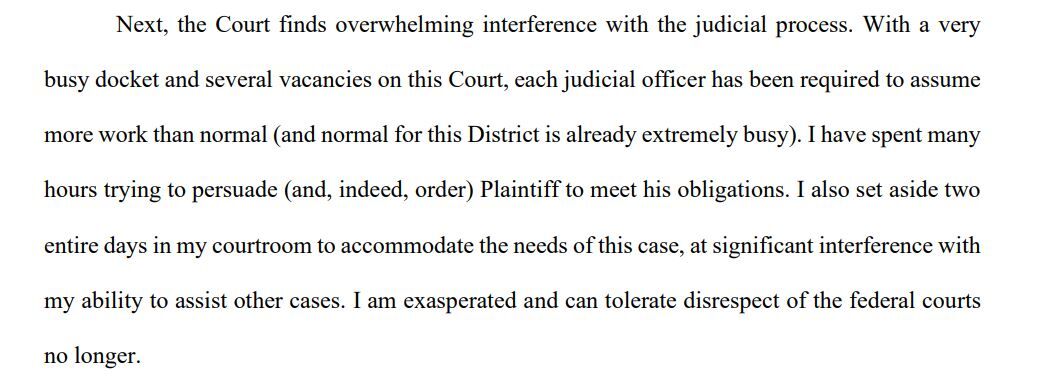COURT CRAWL | State Supreme Court back at work, one judge’s take on judicial retention

Welcome to Court Crawl, Colorado Politics’ roundup of news from the third branch of government.
The Colorado Supreme Court has returned from its summer break and will begin hearing oral arguments in cases this week, plus one retired judge gave a detailed look at the theory and the practice behind judicial retention elections.
Arguments resume at high court
? Between Tuesday and Wednesday, the state Supreme Court has oral arguments scheduled in five cases, with a heavy focus on the extraction industry. Here is a look at what’s on the docket:
Jagged Peak Energy, Inc. v. Oklahoma Police Pension and Retirement System: Did “puffery” statements by an oil and gas company about its expertise amount to material misrepresentations to investors?
Board of County Commissioners v. Crestone Peak Resources Operating LLC: Pipeline maintenance that lasted 122 days in Boulder County has called into question whether production actually “ceased” and, therefore, the oil and gas leases were terminated.
Antero Resources Corporation v. Airport Land Partners, Ltd.: The justices will settle, once and for all, whether the Colorado Oil and Gas Conservation Commission can adjudicate a dispute out of Garfield County over oil and gas leases.
Liggett v. People: This case involves an examination of how an Arapahoe County judge handled a man’s insanity defense for a grisly murder.
Colorado Judicial Department v. Colorado Judicial Department Personnel Board of Review: In a uniquely intra-judicial case, the Supreme Court will answer whether trial courts can hear cases from the judicial personnel system.
? The Supreme Court also recently agreed to hear another appeal that asks when a mortgage lender needs to initiate foreclosure proceedings against a homeowner coming out of bankruptcy: within six years of the maturity date of the loan or within six years of exiting bankruptcy? The interpretation could affect how quickly banks move to foreclose.
? At the same time, the Supreme Court narrowly turned down three other cases that implicate felony drunk driving offenses and whether fraudulent behavior between contracting parties is an exception to the judicial prohibition on certain types of lawsuits.
All about judicial retention
? This fall, 135 judges will be on the ballot, spread across the state’s 22 judicial districts. While not an election in the traditional sense, judicial retention elections ask voters whether to retain judges for terms of varying lengths, based on the recommendations of citizen-led performance commissions. Former Court of Appeals Judge Russell Carparelli spoke to Colorado Politics about why he has confidence in the commissions’ recommendations, and what should or should not matter to voters. Here is an excerpt:
Colorado Politics: So, it seems the retention process can affect judges in a couple of ways. It can take decent judges and guide them into becoming better judges. And it can force underperforming judges to take a look and decide whether they want to continue doing this job – and that’s assuming the performance commissions are getting a full and accurate picture of what’s going on with each judge. How else does retention affect the quality of the judicial branch?
Russell Carparelli: You make a good point that people should be aware of. During the evaluation process, a judge is not required to make the decision of whether to stand for retention or not until he or she has gone through the evaluation, has met with the commission and knows what the commission is going to recommend.
So, someone for whom the commission will say “does not meet performance standards” may well be discouraged – and, in fact, we know this – many are discouraged from standing for retention. It is at least embarrassing to stand for retention and have the system say you’re not meeting standards. It is also a risk that you will be non-retained.
Some judges will decide not to stand for retention, or will decide to resign or retire because they got a bad evaluation.

Decided on appeal
? The Colorado Supreme Court, by 6-1, confirmed police may obtain a search warrant and forcibly draw your blood if they suspect you solely of driving under the influence.
? If family members say a child in a welfare case has possible tribal heritage, that doesn’t automatically trigger longstanding protections for tribal nations under federal law, the state Supreme Court decided. There is only a duty to investigate those claims further to determine potential tribal membership.
? Although El Paso County prosecutors didn’t do a perfect job of establishing a defendant on trial for a gun offense was the same man previously convicted of a drug crime, the Supreme Court still upheld his conviction.
? The General Assembly changed the law last year to no longer allow for lifetime prison sentences for people who are involved in a killing but don’t pull the trigger. But the state’s Court of Appeals determined a man who is serving life without parole, without the benefit of the law change, is not subject to cruel and unusual punishment.
? The El Paso County sheriff was, in reality, operating a jail when he detained a man for nearly four months after posting bail, the Court of Appeals decided. That means the lawsuit can now proceed against Sheriff Bill Elder.
? A Democratic former lawmaker may proceed with his lawsuit against a Republican-aligned group that unsuccessfully pursued ethics complaints against him.
? A prosecutor, who is now the elected district attorney in northeastern Colorado, violated a defendant’s rights by implying he was guilty for exercising his constitutional prerogative to remain silent after an arrest, the Court of Appeals concluded.
? Lighting a person on fire counts as arson, in addition to murder.

Federal news
? The governing body of the U.S. Court of Appeals for the 10th Circuit found a magistrate judge in New Mexico, whose term recently ended, likely was responsible for an abusive and hostile workplace environment. The circuit indicated it will order more training for staff and judges, who apparently were unsure what type of misconduct needs to be reported.
? For now, four lawsuits challenging gun safety regulations in Boulder County and three of its municipalities will continue separately, raising the potential of different rulings from different judges.
? Federal judges typically refrain from venting their frustration at length in their decisions. Which is why it was notable when U.S. Magistrate Judge Michael E. Hegarty this month recommended tossing an excessive force lawsuit by outlining all of the ways the plaintiff had made it impossible to proceed. Although the underlying claim – two Aurora police officers allegedly beat up a man fleeing from a suspected stolen vehicle – seemed plausible, plaintiff Brett Strauss failed to follow the judge’s orders, treated his responsibilities in the case as “optional,” and cost taxpayers “tens of thousands of dollars.” Then Hegarty gave his bottom line:

Vacancies and appointments
? The governor has appointed two new judges to the state’s Court of Appeals. Katharine E. “Katy” Lum, a family law attorney, will succeed retiring Judge Michael H. Berger. Karl L. Schock, a prosecutor handling federal appeals, will fill the seat of retiring Judge David J. Richman.
? Mediator and former magistrate Robert R. Gunning will join the Boulder County District Court after the governor appointed him to succeed retiring Judge Norma A. Sierra.
? In the 18th Judicial District of Arapahoe, Douglas, Elbert and Lincoln counties, Magistrate Michelle E. Jones and U.S. Department of Homeland Security lawyer David N. Karpel will succeed District Court Judges Frederick T. Martinez and Elizabeth A. Weishaupl.
? A vacancy in Mesa County exists, as District Court Judge Lance P. Timbreza has resigned. The Supreme Court previously censured Timbreza for his DUI, and Timbreza was again suspended from the bench this year. The deadline for applications is September 29.
? There is also a vacancy on the Larimer County Court due to the retirement of Judge Mary Joan Berenato. If that sounds familiar, it’s because the governor already appointed Jenny L. Lopez Filkins with the Fort Collins City Attorney’s Office to the position this summer. But the Judicial Department has informed Colorado Politics that Lopez Filkins declined the appointment. The city attorney’s office said Lopez Filkins had “personal reasons” for her decision. In the meantime, applications are due by September 28 for a second attempt at filling the vacancy.
Court Crawl on break
? The Court Crawl will be on break next week and will return on October 3.













